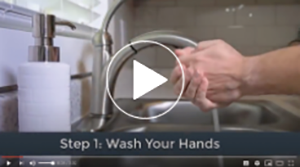OSHA officers considering good faith efforts during COVID-19
On April 16, the Occupational Safety and Health Administration issued interim guidance advising compliance safety and health officers to evaluate employers’ good faith efforts to comply with safety and health standards during the coronavirus pandemic, according to www.osha.gov.
Current infection control practices may limit the availability of employees, consultants and/or contractors who typically provide training, auditing, equipment inspections, testing, and other essential safety and industrial hygiene services. Business closures and other restrictions may also prevent employee participation in training if trainers are unavailable, and access to medical testing facilities may be limited or suspended.
During an inspection, compliance safety and health officers should assess an employer’s efforts to comply with standards that require annual or recurring audits, reviews, training or assessments. Officers should evaluate whether the employer explored all options to comply with applicable standards, such as virtual training; implemented interim alternative protections, such as engineering or administrative controls; and rescheduled required annual activity as soon as possible.
An employer that is unable to comply with OSHA requirements because local authorities required the workplace to close should demonstrate a good faith attempt to meet applicable requirements as soon as possible following the reopening of the workplace. OSHA will take an employer’s attempts to comply in good faith into strong consideration when determining whether to cite a violation.
The guidance remains in effect until further notice; it is time-limited to the current public health crisis. OSHA’s interim guidance is available at www.osha.gov/enforcementmemos.
As mentioned during NRCA’s April 14 Telephone Town Hall, contractors are encouraged to develop and implement office and job-site hazard assessments and abatement plans for ongoing work. This is always a good idea but particularly so during the current situation. NRCA has COVID-19-related toolbox talks and other resources available on its website, www.nrca.net/covid19, to assist with these efforts.
Federal government to audit PPP loans exceeding $2 million

|
On April 28, the Department of the Treasury and the Small Business Administration announced all Paycheck Protection Program loans exceeding $2 million will be audited by the government. Established by the federal Coronavirus Aid, Relief, and Economic Security Act, or CARES Act, the Paycheck Protection Program provides potentially forgivable loans to small businesses affected by the COVID-19 pandemic.
The Department of the Treasury and SBA followed the announcement by adding Question 39 to its FAQ guidance document. The answer to the question notes to “further ensure Paycheck Protection Program loans are limited to eligible borrowers in need, the SBA has decided, in consultation with the Department of the Treasury, that it will review all loans in excess of $2 million, in addition to other loans as appropriate, following the lender’s submission of the borrower’s loan forgiveness application. Additional guidance implementing this procedure will be forthcoming.”
NRCA urges members who have received a Paycheck Protection Program loan or who are still applying for a Paycheck Protection Program loan to regularly check for updated guidance from the Department of the Treasury and SBA by reviewing guidance documents at home.treasury.gov/policy-issues/cares.
OSHA publishes translated workplace posters addressing COVID-19

|
The Occupational Safety and Health Administration has translated and published its “Ten Steps All Workplaces Can Take to Reduce Risk of Exposure to Coronavirus” poster in 11 additional languages at www.osha.gov/pls/publications/publication.html.
Originally available in English and Spanish, the poster highlights 10 infection-prevention measures every employer should implement to protect workers’ safety and health during the COVID-19 pandemic. Safety measures include encouraging sick workers to stay home; establishing flexible work sites and staggered work shifts; discouraging workers from using other workers’ phones, desks and other work equipment; and using Environmental Protection Agency-approved cleaning chemicals from List N or that have label claims against COVID-19.
The poster now is available for download in the following languages: Arabic, Brazilian Portuguese, Chinese Simplified, Chinese Traditional, French Creole, Hmong, Korean, Polish, Russian, Tagalog and Vietnamese.
The additional translations are among OSHA’s latest efforts to educate and protect U.S. workers and employers during the ongoing pandemic.
OSHA offers resources showing proper respirator use

|
The Occupational Safety and Health Administration has released a new video and poster showing employers and workers how to properly wear and remove a respirator during the coronavirus pandemic. A properly worn respirator can help reduce the risk of viral exposure and help prevent spread to others.
The video and the poster describe and demonstrate seven steps every worker should follow when putting on and taking off a respirator. Important steps include washing hands before putting on and after removing the respirator; ensuring the respirator properly covers the user’s nose and mouth; readjusting the respirator if air leaks from its edges; and properly disposing of the respirator in a waste receptacle if reuse is not necessary. The poster is available in English and Spanish.
The video, poster and additional COVID-19 safety guidance and resources are available at www.osha.gov.



